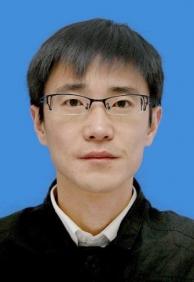
Dr. Su Tao holds a PhD in news media and is interested in pursuing a career in data journalism. He is an alumnus of USCET’s Data Journalism Workshop.
Q: How did you become interested in data journalism?
A: I became interested in data journalism mostly through my PhD field of study. I was studying news media, and new media techniques were one of my interest areas. While preparing for my thesis defense in 2014, I heard about a data journalism workshop hosted by the International News Center. I signed up for it and went there for two days. That was the first time that l learned about data journalism in a structured setting. In addition, I had always planned to teach at a university. I knew that digitalization was an inevitable development in academia. I paid special attention to data journalism in order to prepare for my teaching in the future.
Q: Could tell us about a journalism piece you worked on and are proud of?
A: I spent most of my time teaching and doing research, so I do not have that much experience writing actual reports. But right now I am working on a piece on html 5. The final product will focus on theory but will involve some technical maneuvering. I am trying to present the report in a way that is about the technology behind it but is also easy for readers to understand. After all, I can’t expect all my readers to be technology experts.
Q: How was data journalism taught in your program?
A: Our department offers three programs: advertising, radio and television, and digital media. Courses on data journalism primarily serve the digital media program. Established two years ago, this program is still very new. The courses in data journalism are divided into three categories—introductory data journalism basics, data processing, and data visualization. In addition to these three core courses, we plan to build a workshop in data journalism, with half of the classes devoted to lecture and the other half to student practice. The idea is that students can have some hands-on experience in the workshop.
Q: Do you use things you learned from the workshop at school?
A: Of course. I have participated twice in the data journalism workshop and found each workshop very helpful. Even though the workshop was only held over several weekends, I thought that the trainers explained very well how to write data journalism reports. I gained a clear understanding of these topics at the workshop.
——————————————————————————————————————————————————
苏涛拥有新闻媒体博士学位,并对数据新闻感兴趣。他是中美教育基金会数据新闻工作坊的校友之一。
Q: 你是如何对数据新闻产生兴趣的?
主要还是因为和我博士的专业相关。我当时学的专业是新闻传播学, 新媒体也是我关注的主要领域。14年答辩的时候正好了解到国际新闻中心举办的数据新闻坊。这应该也是国内面向社会的第一个数据新闻工作坊。我参加了两天半他们为期三天的工作坊,第一次系统了解了数据新闻。另一方面,我的职业规划一直是以教学为目的。数据新闻是新闻的发展趋势,为了教学工作做准备,
Q: 可以分享给我们一篇你感到自豪的文章吗?我们想知道写这篇文章的过程中发生的故事——为什么你为这篇文章感到自豪?在写文章的过程中有遇到什么困难吗?
平时工作重点在教学和科研,还没有真正完成一篇数据新闻的文章。不过现在正在写一篇关于 html5的新闻。最后呈现的形式 不会涉及过多数据新闻技术,更多的还是理念。最大的困难首先还是技术。首先要对技术有所了解了解,这就很难做到。即便做到对技术的了解,还要把最终成果浅显易懂的呈现给读者。毕竟普通读者并不是人人都是技术专家。
Q: 你所述的机构如何进行数据新闻的教学的?
我们一共有三个专业,广告、广播电视和网络新媒体。数据新闻的教学主要是针对网络新媒体。这个专业还很新,只开展了两届。主要的内容设置包括三门课,首先是数据新闻概论,讲理论。然后是数据挖掘和分析,讲理论和技术。我们学院现在还没有专门教这方面的教师,所以现在请来计算机学院的一位教授。还有就是信息可视化的课程,主要内容是数据分析之后的呈现。现在教授这门课的是部队里退役的高级工程师,原来是计算机学院的。除此之外我们还计划安排工作坊,一半时间让学生学习一半练习,让学生有更多实战经验。计划是请业界的专家来授课,带领学生完成数据新闻的作品,最好作品也可以在媒体上发表。成绩也由最终作品决定。不过在实施上还是有困难,云南这里由于地域限制不像北京这样的城市请人那么方便,最终计划的落实还是会受到缺乏资源的限制。
Q: 现在在工作中有用到工作坊里学到的东西吗?
肯定有。我前后共参加 两次数据新闻工作坊,觉得对我帮助都非常大。虽然工作坊时间短, 没有办法完全掌握一个具体软件,很多内容需要自己之后再花时间学习,但是如何做数据新闻,新闻教学,工作坊的讲师都讲得很好,通过工作坊对这些基本知识有了清晰的认识。
